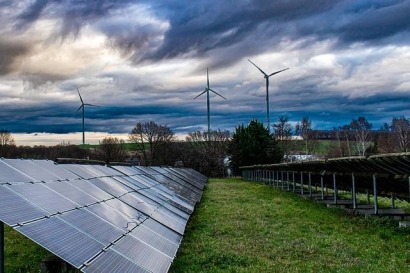
The cost-of-living crisis has impacted people and almost a third (31%) said they believe solar energy will be cheaper and more efficient than fossil fuel in 50 years. Just over a quarter (27%) believe installation costs will dramatically reduce and nearly a quarter (23%) think there will be green subsidies and loans to encourage people to use solar energy.
The research revealed a high level of understanding of the benefits of energy being harnessed from the sunshine with just over two in five (24%) saying it will become the most used form of energy in five decades time and almost three in 10 (30%) envisaging solar farms being located all over the country.
When it comes to what will be majority powered by solar energy in the next 50 years, people suggested homes (53%), street lamps (46%), household appliances (32%), factories (27%), cars (23%), phones (23%), trains (20%), computers (18%), bicycles (14%), and even boats (12%), cruise liners (11%), planes (9%), and helicopters (8%). The list of what people anticipate will be powered by the renewable energy source suggests a widening of uses from simply domestic applications that are now commonplace.
Project Solar UK, the organization that commissioned the future gazing research, is already investigating how solar panels can contribute to a greener society and is supplying products to be tested as part of an experimental eco house, The Future Home, at the University of Salford.
The house featuring solar panels, electric vehicle charging facilities and indoor heating from Project Solar UK, has been built inside a climate-controlled chamber at the university as part of its £16m Energy House 2.0 research project. Researchers hope the temperature-controlled chamber can stress test green tech to help make houses energy efficient in the future with the solar panels being a key factor in generating energy.
Simon Peat, a greentech entrepreneur and CEO of Project Solar UK says, “Our research shows that people anticipate that solar power will run virtually everything from home appliances to planes in five decades time. When horizon scanning in our business meetings, we look at the pace of change, how people have become more self-sufficient with energy in the past couple of decades and how we anticipate things will progress in the years to come.
'Solar panels have become increasingly accepted as a cost effective way to generate energy - particularly as we experience the cost of living crisis and soaring energy prices. The price of panels has come down dramatically in the past decade and we are encouraged by the number of enquiries we are dealing with as people start to become curious about solar energy. We are here to answer questions and plan to play our part in the future of harnessing solar energy in the UK.”

